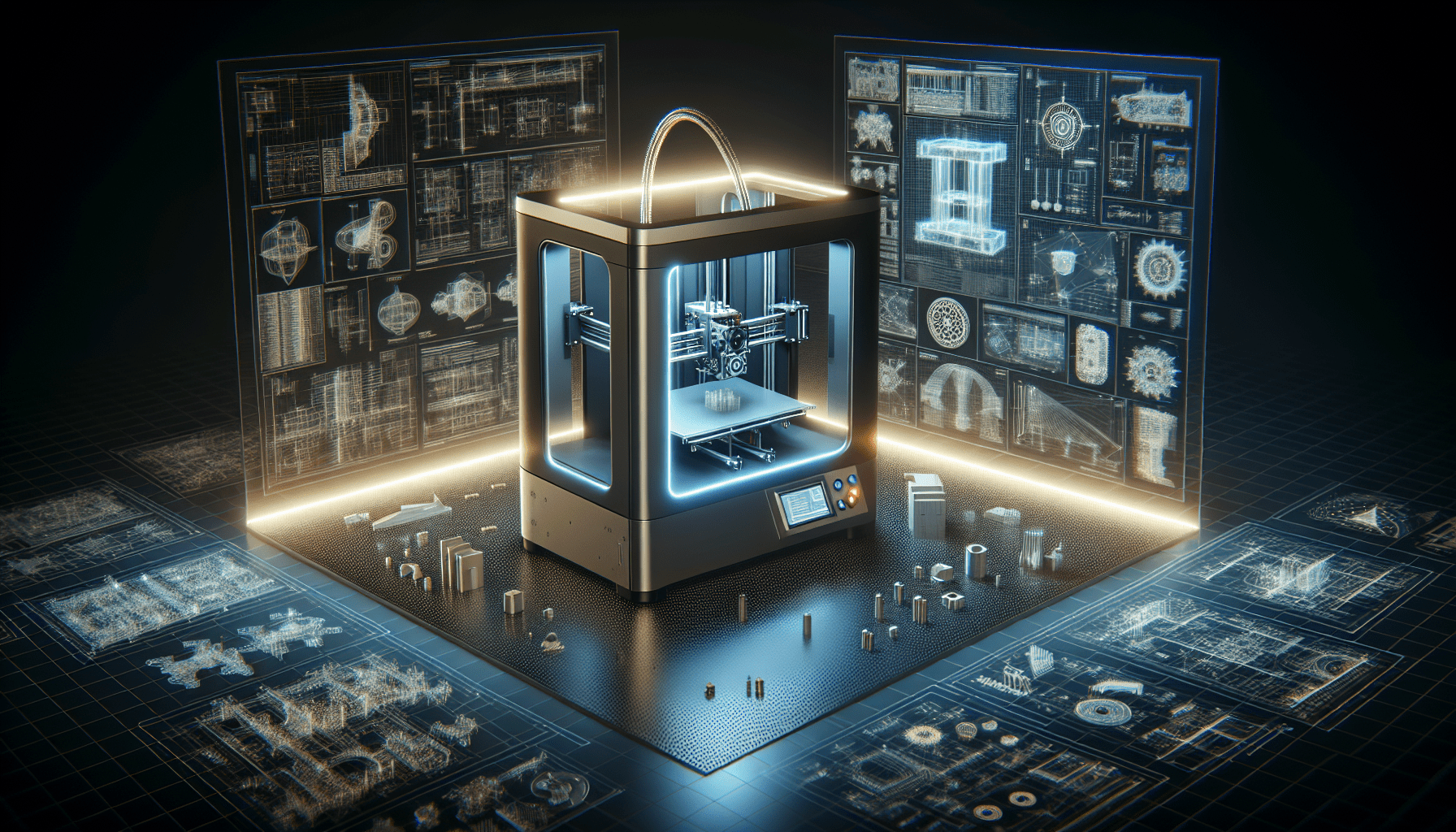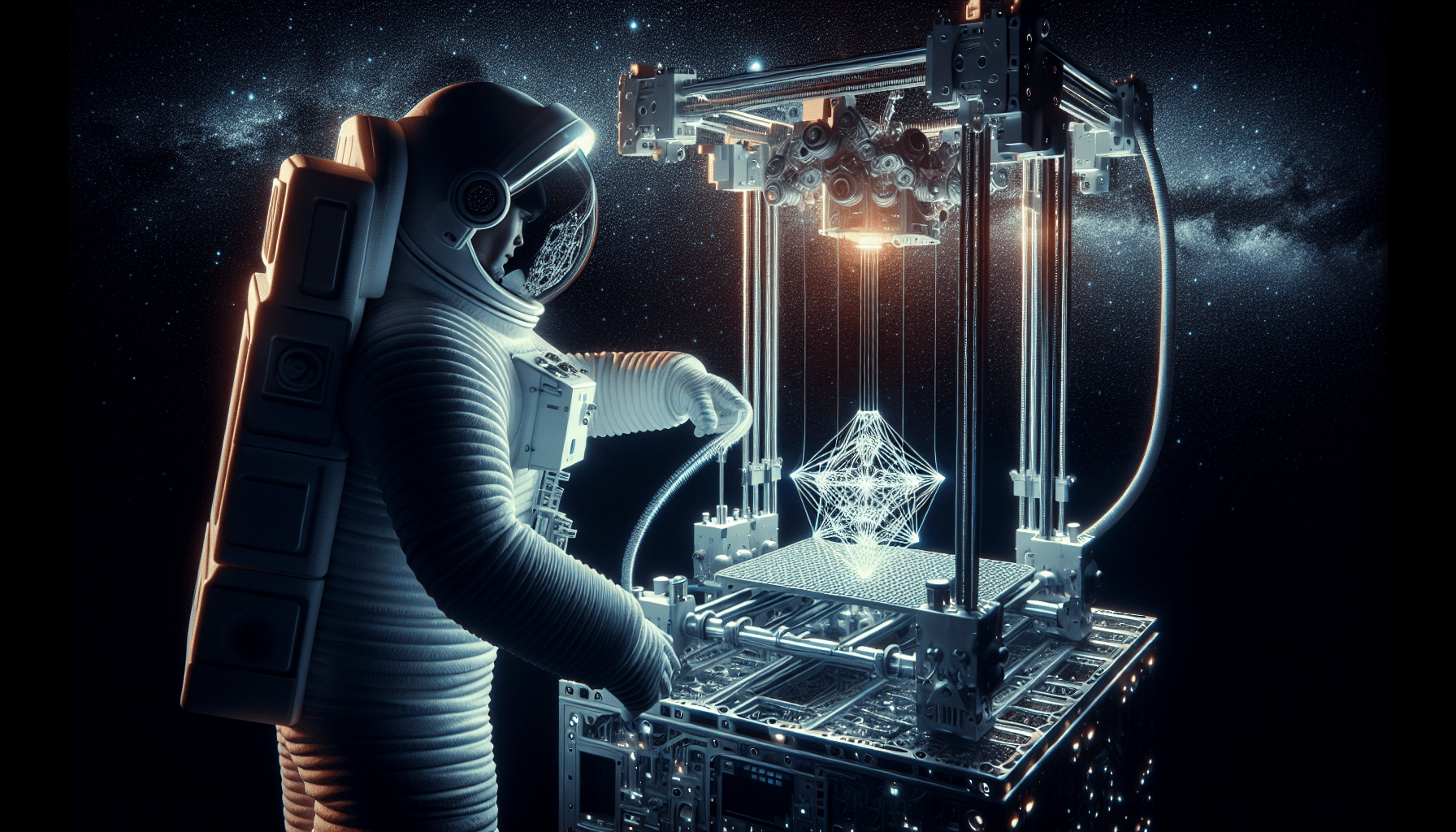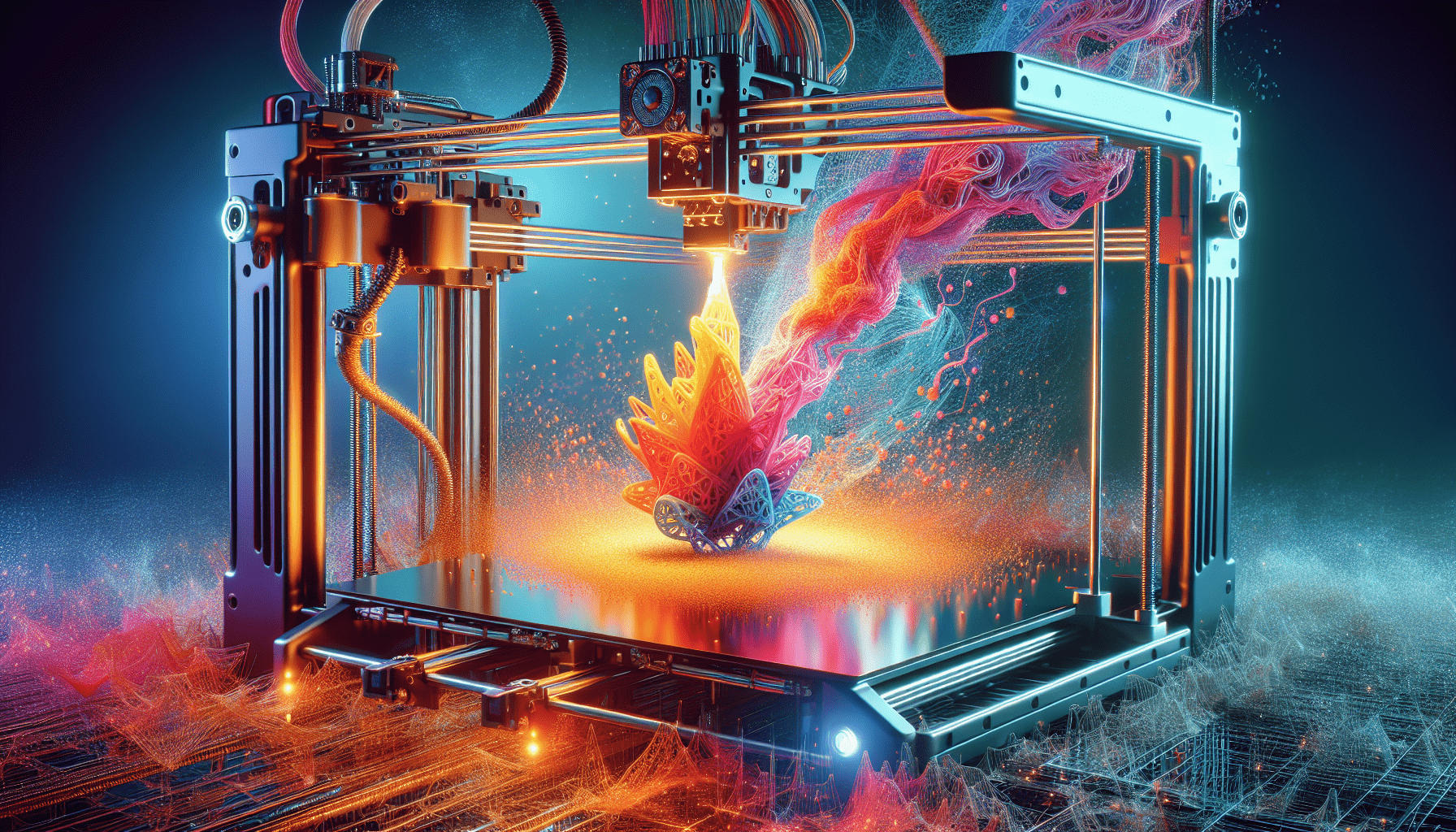ELEGOO Mars 5 Ultra 9K Resin 3D Printer, 150mm/h High Speed Printing, Smart Automatic Leveling, Intelligent Detection, WiFi-Transfer, Printing Size of 6.04 x 3.06 x 6.49 inch
$284.99 (as of June 21, 2025 23:57 GMT +00:00 - More infoProduct prices and availability are accurate as of the date/time indicated and are subject to change. Any price and availability information displayed on [relevant Amazon Site(s), as applicable] at the time of purchase will apply to the purchase of this product.)McDonald’s has taken a significant stride towards sustainability by partnering with Philips MyCreation to install custom 3D printed light fixtures in all 38,000 of its locations worldwide. These innovative fixtures are not only designed with unique embossed circular pendants crafted from recyclable materials, but they also contribute to McDonald’s ambitious goal of slashing shipping pollution, utility costs, waste, and carbon footprint by 60% by 2030. Locally produced on-demand, these light fixtures will help shorten delivery times and reduce transport emissions, while eliminating the need for large inventories. This global rollout, reaching over 100 countries, marks another feather in the cap for Philips MyCreation, which has previously developed 3D printed lighting solutions for clients like Signify, SeaWorld Yas Island, and Dutch supermarket chain PLUS. With the technology offering benefits such as intricate designs and efficient localized production, this partnership shines as a beacon of sustainable innovation in the fast-food industry. Have you ever thought about how much energy and resources go into lighting the world’s most ubiquitous fast-food chain, McDonald’s? Imagine the global environmental impact if those bright golden arches could light up sustainably. This isn’t just a dreamy hypothesis. McDonald’s has made a groundbreaking move teaming up with Philips MyCreation to install custom 3D printed light fixtures in all 38,000 of its locations worldwide. Intrigued? Let’s dive into how this partnership is revolutionizing sustainability.
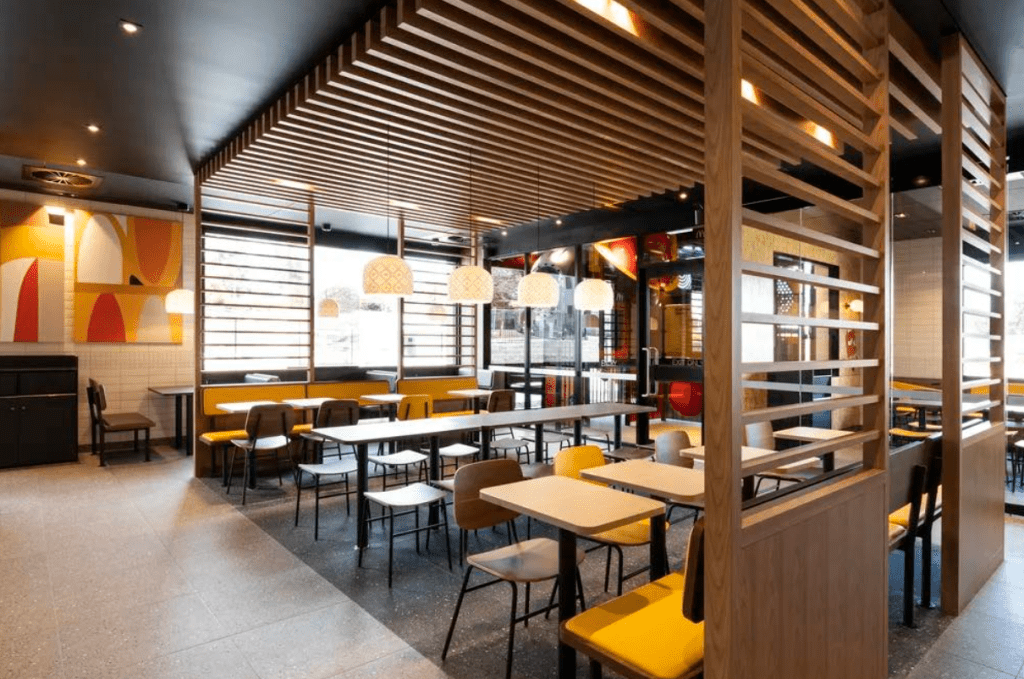
$30 off $400+ Anycubic Products with code AC30OFF
The Power of Partnership: McDonald’s and Philips MyCreation
In a world increasingly focused on sustainability, McDonald’s has aligned itself with Philips MyCreation, a pioneer in customized 3D printed lighting solutions. This partnership is more than just about new lighting; it’s about rethinking logistics, materials, and long-term environmental impact.
Why Philips MyCreation?
You might wonder why McDonald’s chose Philips MyCreation. Philips MyCreation has an impressive track record of creating 3D printed lighting solutions for notable clients such as Signify, SeaWorld Yas Island, and Dutch supermarket chain PLUS. Their reputation for combining artistic design with sustainable practices made them the perfect partner for McDonald’s ambitious project.
The Vision: Sustainable Lighting Design
The core of this initiative lies in its lighting design—imagine unique, embossed circular pendants created from recyclable materials. These are not just ordinary light fixtures but symbols of innovation and sustainability hanging in more than 38,000 McDonald’s restaurants worldwide.
Lighting Design: Marrying Aesthetics and Sustainability
One of the most captivating elements of this project is the lighting design itself. These fixtures are not merely functional but are pieces of art that carry a message.
Materials Used
The light fixtures are crafted from recyclable materials, reducing waste and promoting a circular economy. This means when a light fixture reaches the end of its life, it can be recycled back into the production cycle, drastically reducing landfill waste.
Aesthetic Appeal
These aren’t just bland, utilitarian lights. Each 3D printed fixture features an embossed circular design that adds a sophisticated touch to McDonald’s interior ambiance. Whether you’re grabbing a quick bite in Tokyo or enjoying a family meal in Buenos Aires, you’ll be greeted by these beautifully crafted, sustainable lighting fixtures.
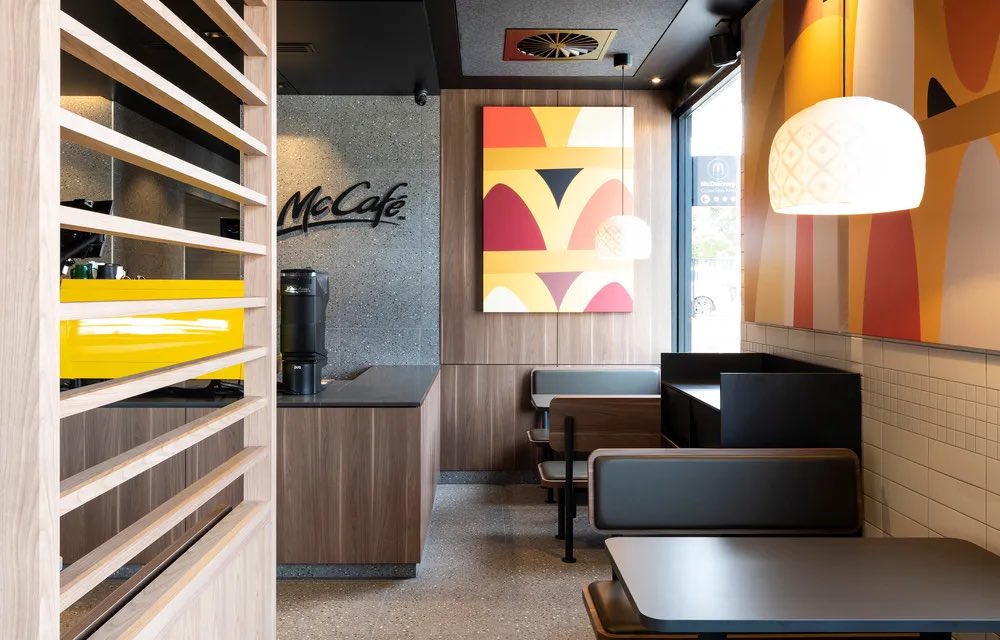
Buy Photon Mono M5 Get Free 1KG Resin
Sustainability Goals: More Than Just Green Talk
Reducing your carbon footprint is easier said than done. However, McDonald’s has set clear sustainability goals and timelines for this initiative.
Reducing Shipping Pollution
One of the stunning benefits of 3D printing is the ability to produce locally. By manufacturing the light fixtures in various locations close to McDonald’s restaurants, the initiative slashes shipping distances, thereby reducing shipping pollution.
Cutting Utility Costs
Energy-efficient lighting doesn’t just help the planet; it also helps the bottom line. The new light fixtures are designed to be energy-efficient, thereby cutting down on utility costs for thousands of outlets worldwide.
Waste Minimization
With on-demand production, there’s no need for large inventories. This not only cuts storage costs but also minimizes waste, another significant step towards McDonald’s sustainability goals.
Carbon Footprint Reduction
McDonald’s aims to reduce its carbon footprint by 60% by 2030, and this lighting project is a substantial step towards that goal. By incorporating recyclable materials and reducing shipping and utility costs, McDonald’s is making significant strides in reducing its overall carbon emissions.
Production: Fast, Localized, and On-Demand
The logistics of this project are as innovative as the design itself. Producing these light fixtures locally shortens delivery times and slashes transport emissions. It’s like eating local but in the context of manufacturing.
Local Production
Local production is a cornerstone of this initiative. By manufacturing the light fixtures closer to their final destination, the project minimizes the emissions associated with long-haul shipping.
On-Demand Production
Gone are the days of vast warehouses stocked with products waiting to be shipped. With 3D printing, each light fixture can be produced on-demand, reducing the need for large inventories and the waste that comes with it.
Speed and Efficiency
3D printing accelerates the entire production process, making it faster to roll out new designs and implement them across all McDonald’s locations worldwide. Not only is this efficient, but it also allows for quick adaptations if any modifications are needed.
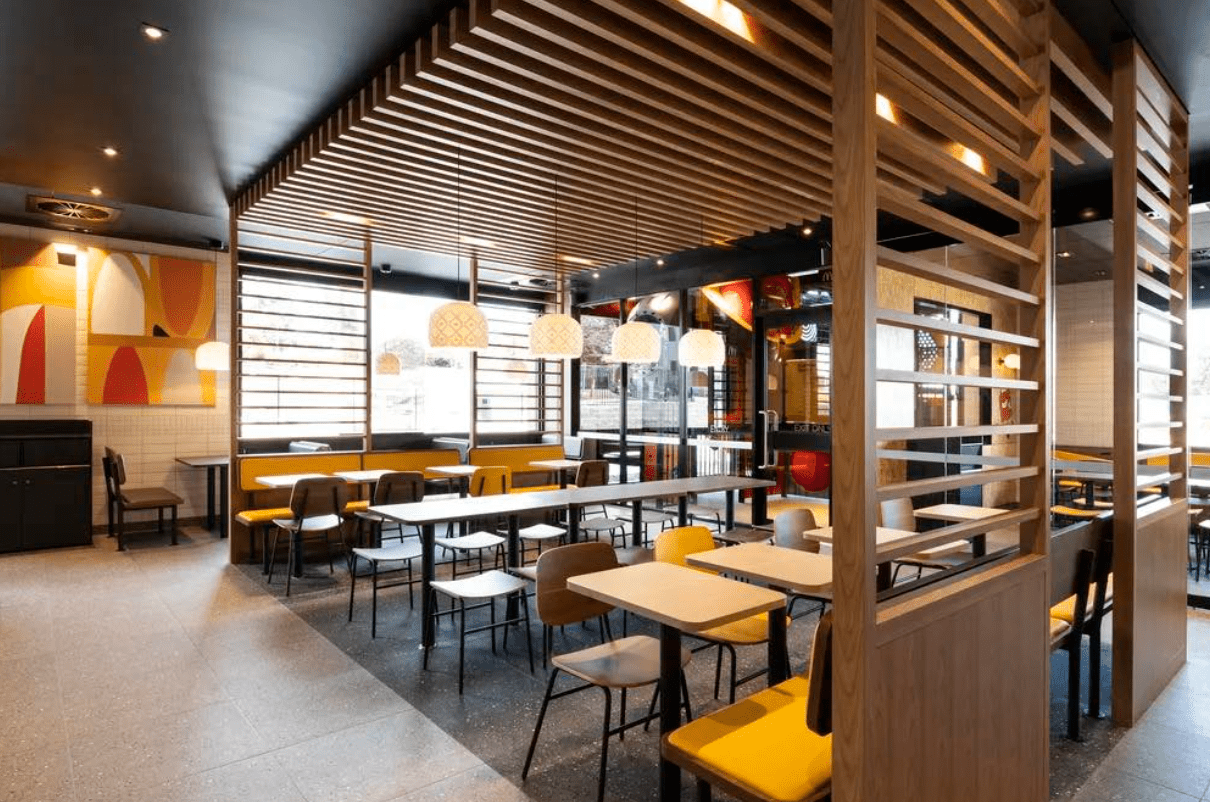
Global Rollout: Lighting Up the World
This lighting solution is not just a pilot project in a handful of countries. It’s being implemented in McDonald’s restaurants in over 100 countries, from Argentina to Japan. This global rollout demonstrates McDonald’s commitment to sustainability on an unparalleled scale.
Regions Benefitted
The initiative will benefit regions across the globe, making a worldwide impact. Here’s a peek at some of the countries:
| Continent | Example Countries |
|---|---|
| North America | United States, Canada |
| South America | Argentina, Brazil |
| Europe | United Kingdom, France, Germany |
| Asia | Japan, China, India |
| Africa | South Africa, Nigeria |
Collective Impact
By implementing this sustainable lighting solution in so many diverse locations, McDonald’s is making a collective global impact, fostering a culture of sustainability that transcends borders.
Industry Context: A Leader Amongst Leaders
Philips MyCreation isn’t new to this game. They have previously created 3D printed lighting solutions for various esteemed clients, making them a trusted name in the industry.
Signify and SeaWorld
Companies like Signify and SeaWorld Yas Island have benefited from Philips MyCreation’s expertise in 3D printed lighting solutions, creating environments that are both beautiful and eco-friendly.
Dutch Supermarket Chain PLUS
Closer to home, the Dutch supermarket chain PLUS has also embraced these 3D printed lighting solutions, proving that sustainability and functionality can go hand in hand across different sectors.
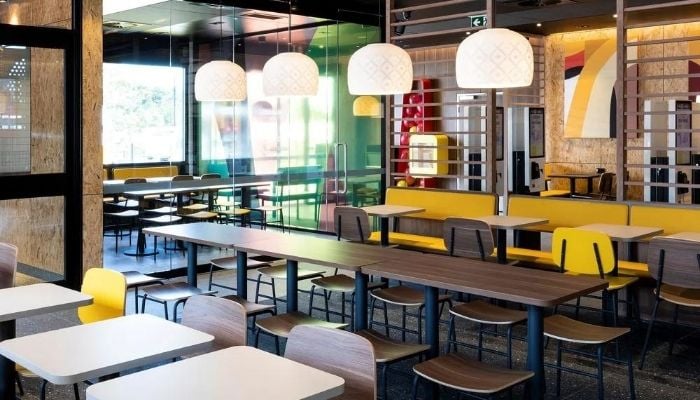
3D Printing Benefits: A Technological Marvel
The benefits of 3D printing extend far beyond the allure of customized designs. This technology brings numerous advantages in terms of efficiency, sustainability, and innovation.
Intricately Designed Fixtures
3D printing allows for incredibly intricate designs that would be impossible or extremely costly to achieve with conventional manufacturing methods. This level of detail adds to the aesthetic appeal of McDonald’s new light fixtures.
Waste Reduction
3D printing is inherently less wasteful than traditional manufacturing. By building objects layer by layer, this process uses only the material needed for the final product, drastically reducing wastage.
Efficient, Localized Production
Producing locally not only reduces shipping emissions but also enables quicker response times for maintenance and replacements. This adds another layer of efficiency to the whole operation.
Versatile Materials
One of the most exciting aspects of 3D printing is its versatility in terms of materials. From recyclable plastics to more advanced composites, Philips MyCreation can adapt its materials to meet both aesthetic and functional requirements.
Related Projects: Lighting up the Future
McDonald’s isn’t the only entity exploring the potential of 3D printed lighting solutions. Across the globe, several other notable examples demonstrate the versatility and sustainability of this technology.
Urban Scale Interventions in Belfast
In Belfast, Urban Scale Interventions has harnessed the power of 3D printing to create public installations that are both artistic and sustainable, setting new standards for urban lighting.
Lighting Research Center’s Partnership with Eaton Corporation
The Lighting Research Center’s collaboration with Eaton Corporation focuses on developing innovative, energy-efficient lighting systems. Their work is a testament to the possibilities that lie within the intersection of research and industry application.
OceanLED’s Developments for Yachts
OceanLED is pushing the boundaries of 3D printed lighting in the marine industry. Their developments for yachts showcase how 3D printing can address the unique challenges of maritime lighting, combining durability with aesthetic appeal.
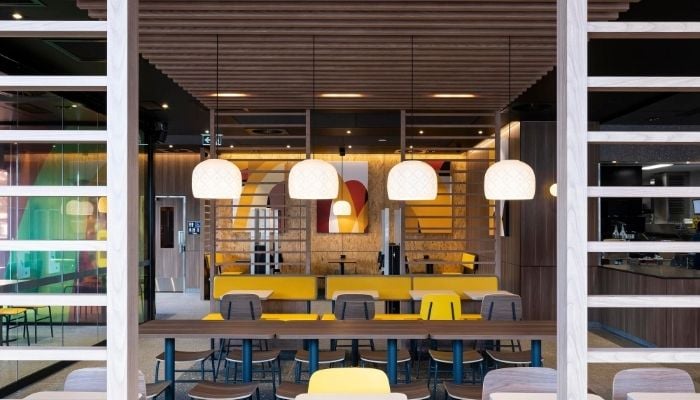
Conclusion: A Brighter, Sustainable Tomorrow
McDonald’s partnership with Philips MyCreation signifies a monumental shift in how large corporations can approach sustainability. By focusing on decentralized production, recyclable materials, and efficient designs, McDonald’s is setting a new benchmark for corporate responsibility.
Takeaway
Imagine your local McDonald’s, not just as a place to grab a burger, but as a beacon of innovation in sustainability. With its new 3D printed light fixtures, McDonald’s is illuminating the path towards a greener future, one light at a time.
Final Thought
Next time you step into a McDonald’s and look up at those beautifully designed lights, you’ll know you’re part of a brighter, more sustainable world. Isn’t that a comforting thought? After all, who knew that grabbing a Happy Meal could help light the way to a happier planet?
$30 off $400+ Anycubic Products with code AC30OFF






